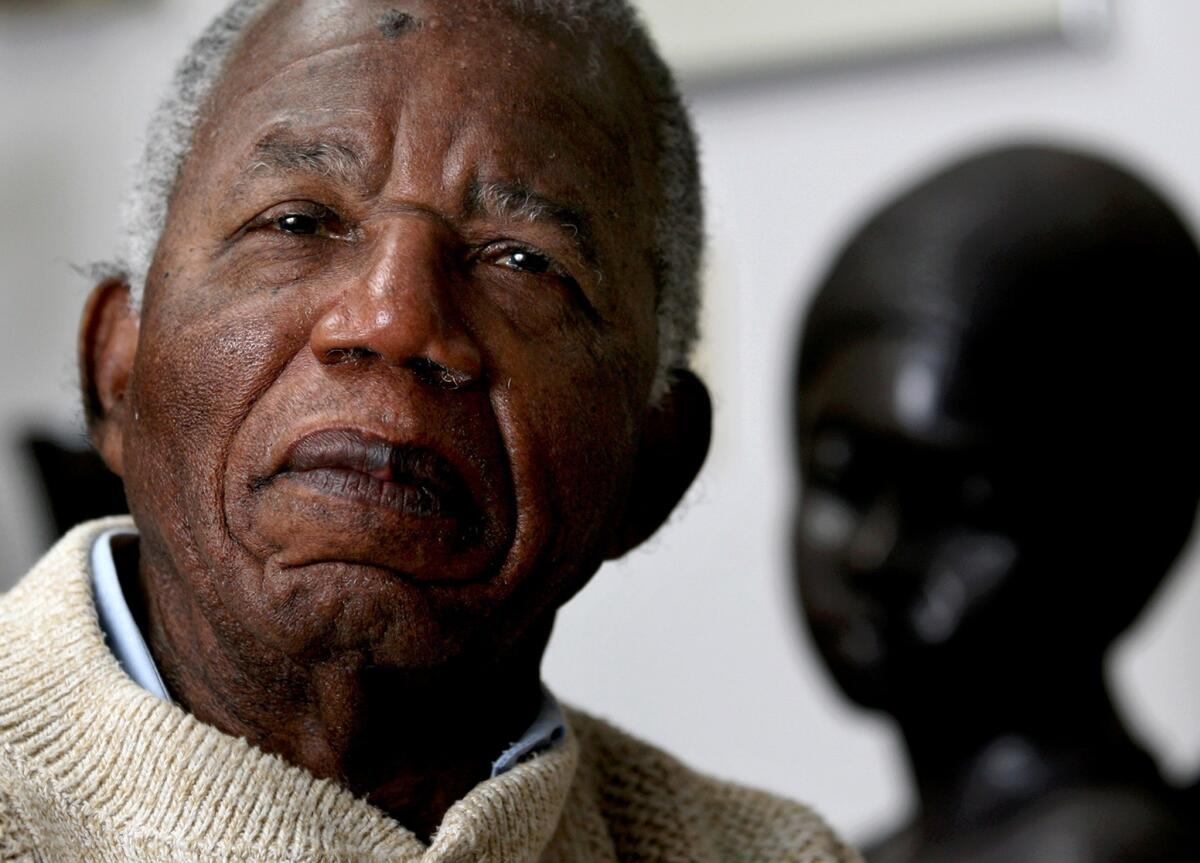Chinua Achebe, author of ‘Things Fall Apart,’ dies at 82

- Share via
Nigerian-born author Chinua Achebe has died. The 82-year-old was best known for his gorgeously written historical novel that served as an indictment of colonialism, “Things Fall Apart.” Published in 1958, “Things Fall Apart” soon became an international hit and made Achebe one of the most prominent writers from Nigeria and Africa. It is said to be the most widely read book on the continent.
Achebe’s literary agent Andrew Wylie announced Friday that the author had died after a brief illness. He declined to provide further details.
Achebe was a professor of Africana studies at Brown. He came to live in the U.S. in the 1990s after being injured in an automobile accident. He had previously been a professor at Bard College in New York.
“Things Fall Apart” was not without its critics. Some British critics thought it idealized the Igbo society of pre-colonial rule. As the colonial era ended, some African thinkers criticized the book for being written in English and taking its name from the poem “The Second Coming” by Anglo-Irishman William Butler Yeats. They viewed this as not being a great enough break from the British colonial power.
Achebe was a dedicated political thinker, a public intellectual who worked at the nexus of art and politics. His critique of Joseph Conrad’s “Heart of Darkness,” the lecture and published piece “An Image of Africa,” is a seminal work of post-colonial literary studies.
That critical mind remained sharply tuned to the world around him. As changes in Africa seesawed between triumph and tragedy, Achebe kept a keen eye out for abuses of power. In a 2010 lecture at Cambridge University in England, he criticized Nigeria’s “indolent kleptocrats” and called the government “a cesspool of corruption.”
At a 2010 Brown colloquium on Africa, Achebe spoke openly of the political responsibility of the artist and intellectual. “We have endured a terrible failure of leadership – not just individuals, but a whole class of potential leaders, from which I do not absolve myself. The role of the intellectual is difficult. We should live by what we preach and we should speak out. In that way we always seemed to be superior to our former Western leaders. For them, writers and painters just had to write and paint and keep out of politics.”
Achebe’s other novels -- often criticized in the West as being too overtly political -- include “Anthills of the Savannah,” “A Man of the People,” “No Longer at Ease” and “Arrow of God.”
ALSO:
Things come together: a tribute to Chinua Achebe
A history of a person and country in Chinua Achebe’s ‘There Was a Country’
Stephen King and his wife Tabitha pledge $3 million to local Bangor library
Carolyn Kellogg: Join me on Twitter, Facebook and Google+
More to Read
Sign up for our Book Club newsletter
Get the latest news, events and more from the Los Angeles Times Book Club, and help us get L.A. reading and talking.
You may occasionally receive promotional content from the Los Angeles Times.








